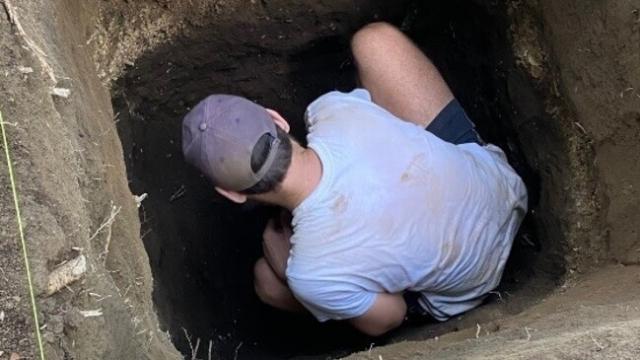
Robert Henderson
In the fifteenth century CE, a massive volcanic eruption on the island of Kuwae reshaped the physical and social landscapes of Central Vanuatu. The disaster resulted in the destruction of a large portion of Kuwae, creating a submarine caldera more than 12 kilometres wide, which separates the islands now known as Epi and Tongoa. Epi is by far the largest island to emerge from the aftermath of the eruption, but until recently, little work has been undertaken to address questions about its past. Following two field seasons on the island, we have begun to develop an understanding of various aspects of Epi’s story, including the extent of the impact of the major Kuwae eruption, the prevalence of volcanic hazards from other sources, and the various social and interactive phenomena in which Epi communities have engaged throughout its roughly 3000-year-long human history, especially as manifested in material culture. These insights present an opportunity to consider how challenges posed by volcanic eruptions, as well as other sources of disaster, may have acted as factors in the development of the complex networks connecting communities across this diverse archipelago.
Robert Henderson is a PhD candidate in Archaeology & Natural History at the Australian National University College of Asia & the Pacific. He has conducted fieldwork on Epi Island, Central Vanuatu, in collaboration with the Vanuatu Cultural Centre and local communities in 2022 and 2023. He completed undergraduate and Master's studies at the University of Otago, in New Zealand, where he undertook research on collections from Lapita sites in the Arawe Islands of West New Britian province, Papua New Guinea.
Location
Speakers
- Robert Henderson (PhD candidate at ANU College of Asia & the Pacific)
Contact
- Ben Shaw